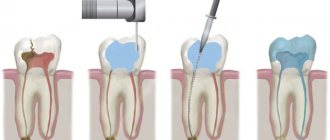From this article you will learn why sudden changes in mood occur and what diseases this symptom is associated with.
Emotional instability is often caused by exposure to stress and prolonged psychological tension at home or at work. Elimination of unfavorable factors and psychotherapy relieve these symptoms.
But it also happens that a sudden change in mood is caused by some serious illness. In this case, it is important not to hesitate and at the first manifestations, consult a doctor. What diseases do these symptoms indicate, and how can you help yourself? Find the answer to this question below.
What is a sudden change in mood called: what kind of diseases, diagnoses?
A sharp change in mood
A sharp change in mood, not caused by external factors, suggests changes in the hormonal status and psyche of a person. Such mood swings do not last long and go away either on their own or after medication adjustment and are observed more often in women with the following conditions:
- Premenstrual syndrome
- Menopause period
- Thyroid diseases
More serious mental disorders in women and men with sudden changes in mood are a disease and have a long course. Here are some diagnoses with these symptoms:
- Cyclotomy is characterized by changes in often pronounced excitement and mild depression. It develops at a young age and has a chronic course, and its occurrence is associated with genetic factors.
- Bipolar disorder is a mental illness characterized by sudden mood swings from confidence, increased self-esteem and excitement, to sadness and vice versa. The highs are periods of mania and the lows are periods of depression. Sometimes there can be joy, but in very exceptional cases. A person commits illogical actions, behaves too uninhibitedly and incorrectly builds logical chains when thinking. The phase of excitement passes and is replaced by apathy and depression. A person constantly experiences extreme fatigue.
- Mood swings can even become mixed, with a person feeling elated and depressed at the same time. This disease is appropriately called manic-depressive psychosis .
- Alzheimer's disease is a slowly progressive disease of the brain and is characterized by memory loss, disturbances in thinking, behavior and speech. Symptoms may vary in severity. The development of the disease is influenced by increasing age and genetics.
- tumors can provoke sudden changes in mood and other mental abnormalities. Diagnosis and treatment of such conditions must be carried out when the first symptoms appear, which will significantly increase the chances of a favorable outcome.
Remember: At the first manifestations of sudden conditions associated with psychosis and other nervous symptoms, you should consult a doctor. Many diseases associated with nerves can be easily treated at the initial stage of pathology development.
Diagnosis of endogenous depression
A psychiatrist or psychotherapist will be able to determine whether you really suffer from depression, what type of depression it is, whether you have other (related) disorders and aggravating heredity, on the basis of which he will make an accurate diagnosis.
The diagnosis is made by a doctor based on the diagnostic criteria for depressive disorder, so diagnosing depression by a psychiatrist is complex.
During the conversation, the doctor will collect anamnesis, analyze heredity, clarify symptoms, and identify the duration and severity of the disorder. If the patient is in serious condition, the consultation requires the presence of a close relative who can provide this information for him. The doctor will also observe behavioral and emotional reactions to establish an accurate diagnosis.
Before or after the conversation, the person will be asked to fill out questionnaires compiled using standard methods for assessing depression, the results of which will determine the severity and persistence of depressive symptoms, as well as the risk of suicide. Examples of questionnaires:
- Hamilton Depression Scale (HDRS);
- New Castle Depression Rating Scale (NEDRS);
- Montgomery-Asberg Depression Rating Scale (MADRS);
- E. Beck Depression Scale;
- Inventory of Depressive Symptoms (IDS);
- Raskin Depression Scale (RDRS);
- Depression scale of the Research Institute named after. Bekhterev;
- Hospital Anxiety and Depression Scale (HADS), etc.
It is also necessary to consult a therapist, neurologist and endocrinologist, because they will be able to identify diseases and disorders that may aggravate endogenous depression and give recommendations for their treatment: the patient may need to do a general blood test, MRI of the brain, a number of hormonal studies, ultrasound of the thyroid gland, etc.
Only a comprehensive diagnosis will make it possible to make an accurate diagnosis and identify the factors that actually underlie depression and create an individual treatment plan.
Sudden changes in mood: signs of psychological disorder
Sudden changes in mood
There is no clear line between a mental disorder and a normal state of mind. Any person in a state of passion is capable of behaving inappropriately. If there is no reason for a radical change, but within a few minutes it changes in one direction or the other, then we can talk about a mental disorder as an independent disease. A sudden change in mood, as a rule, does not just happen. This is the first sign of a psychological disorder:
Bipolar mental disorder:
- This condition is characterized by mental agitation for several hours, days or even weeks. The first signs of the disease were described above.
- For more information about this pathology, read the article on our website at this link .
Attention deficit hyperactivity disorder:
- The behavior of such patients is characterized by hyperactivity and impulsiveness.
- A person’s “think-do” connection is disrupted. They do first, think later.
- Internally, a person tries to control this, which is why sudden mood swings occur.
- The patient withdraws into himself and does not want to communicate with the outside world.
Depression:
This is a disease that causes chronic mental changes, often irreversible. Here are the types of depression:
- Dysthymia . This is the easiest version of depression. It is easily reversible. It is also called depressive mental disorder.
- Cyclophrenia. This is the most severe type of depression. With this disease, patients behave inappropriately, sometimes even dangerously. They tend to harm not only themselves, but also those around them. They are unable to control their mood. They react to joyful events with sadness and vice versa.
Borderline Personality:
- Such people experience only the extremes of emotions, that is, love and hatred, hunger and satiety. Moreover, they feel this feeling at the same time.
- A person loves madly, and the next second he can kill without thinking.
- It is extremely difficult for the patient to interact with society.
Intermittent temper disorder:
- People with such a mental disorder suddenly explode with anger for no apparent reason.
- Within a few minutes their condition returns to normal.
- Such patients are dangerous because in a fit of anger they can harm others.
Alcohol disease:
- With constant drinking of alcohol, the state of the psyche irreversibly changes.
- Euphoria is replaced by a decadent mood.
- A person has inhibited reflexes, a constant feeling of fatigue, and can even lead to deviant behavior.
Only a specialist can distinguish bad character from a mental disorder. He will draw up a treatment plan and help you deal with the problem.
Concept and main types of depression
The term "depression" in scientific circles refers to a depressive disorder that occurs on its own or is one of several disorders underlying a more serious, mixed disorder (eg, bipolar affective disorder). Depression can occur in a single episode (depressive episode) or repeated episodes (recurrent depressive disorder).
Depression is an affective or mood disorder in which the primary disorder is a change in emotions and mental state, accompanied by changes in the general level of activity. The remaining symptoms are secondary, i.e. are a consequence of the main [D. Kovpak, L. Tretyak, 2013].
There are several classifications of depression, but they are based on a division based on the causes and mechanisms of its occurrence, proposed in 1970 by the Swiss psychiatrist Paul Kilkholz, who identified three main types of depression: somatogenic, endogenous and exogenous.
Somatogenic depression
Somatogenic depression occurs as a result of physical illnesses that are in no way related to a person’s mental activity.
Somatogenic depression can be caused by:
- neurological disorders (stroke, dementia, Parkinson's disease, traumatic brain injury, epilepsy, etc.);
- endocrine pathologies (adrenal diseases, hyperaldosteronism, postpartum hormonal changes, etc.);
- other somatic diseases (vitaminosis, uremia, neoplasms, cardiopulmonary diseases, porphyria) [G. Mazo, N. Neznanov, 2018].
Treatment of somatogenic depression should be aimed at getting rid of the disease that underlies it, and not its consequences (i.e. depression), therefore, if this type of depression occurs, it is necessary to contact the appropriate specialists: therapist, neurologist, cardiologist, etc. d.
Somatogenic depression is widespread, but depression caused by psychogenic factors is the most common.
Exogenous (psychogenic) depression
The name of this type of depression translated from Greek means “generated from the outside,” i.e. psychogenic depression occurs as a result of the mental reaction to the strong influence of negative external stimuli, due to negative events that have happened or continue to happen to a person.
The main causes of psychogenic depression are psychological trauma of varying intensity, for example:
- chronic stress;
- death or illness of a loved one;
- emotional or physical abuse;
- a radical change in lifestyle (loss of social status, material well-being, moving to another country, etc.);
- other difficult life situations [K. Telia, 2021].
However, depression is not always caused by psychological trauma or somatic illnesses; sometimes it can occur in an absolutely healthy person, in whose life there have been no emotional upheavals.
Endogenous depression
It is the most complex type of depression, caused not by external factors and physical illnesses, but by congenital features of the functioning of the psyche.
The cause of this type of depression is a hormonal imbalance in the body, which occurs due to a genetically determined deficiency of neurotransmitters responsible for the production of the so-called “hormones of happiness” (serotonin, dopamine and norepinephrine), a sufficient amount of which is necessary to effectively combat stress, maintain a stable mood and getting pleasure.
Endogenous depression can occur as a consequence of psychological trauma, but it often occurs spontaneously, since an imbalance of neurotransmitters reduces adaptation and resistance to stress, so even the most ordinary everyday problems can serve as a catalyst for the occurrence of this disorder in individuals burdened with this kind of genetic inheritance. Restoration of neurotransmitters does not occur in them, which triggers an autonomous endogenous process that develops under the influence of psychogenic factors (of any intensity) and begins to occur regardless of external stimuli [D. Kovpak, L. Tretyak, 2013].
Thus, it is the genetic predisposition that leads to the occurrence of endogenous depression, the reasons for its occurrence lie precisely in the hereditary deficiency of neurotransmitters, and the negative factors that influence a person are only catalysts for the development of this disorder, but do not cause it in any way - endogenous depression can occur even if a person is absolutely physically healthy and there are no problems in his life. This is how people who are not in difficult life situations exist in a state of depression, which prevents them from living a full life and being truly happy.
It is impossible to cure endogenous depression on your own, and the lack of timely help from specialists can lead to complications and aggravate the situation, including death (suicide).
Each individual type of depression has its own characteristic symptoms and signs, and endogenous depression has the classic manifestations of a depressive disorder.
Sudden changes in mood and aggression - why it happens in girls and women: reasons for frequent changes
Sudden changes in mood and aggression
Any change in the emotional plane of a woman or girl - a sharp change in mood, aggression, is a consequence of neurophysiological mechanisms in the brain. But the reverse development of events is also possible, as a result of which the activity of all organs and systems (central nervous system, cardiovascular, respiratory, endocrine and others) occurs under the control of experiences or aggression.
Why do girls and women experience such conditions? The main reasons for frequent mood swings include the following:
Physiological changes in hormonal levels:
- Pregnancy
- Breastfeeding period
- Premenstrual syndrome
- Menopause
- Taking hormonal oral contraceptives
- Puberty and adolescence in girls
- Lack of sex life
Pathological changes in hormonal levels:
- Prolactinoma is a brain tumor that synthesizes the hormone prolactin.
- Pathology of the thyroid gland - with increased production of hormones, all reactions in the body occur in an intensive mode. And, conversely, with slow production of hormones, a woman falls into a depressive state.
- Diseases of the liver and gall bladder . Spasm of the bile ducts, production of norepinephrine and, as a result, anger and irritability.
- Diseases of the cardiovascular system . As a result of disturbances in the functioning of the heart - tachycardia, extrasystole, adrenaline (the fear hormone) is produced.
- Stress, worries, conflicts against the background of emotional tension.
- Psychical deviations . For example, bipolar disorder, in which anger and melancholy are replaced by causeless laughter and joy, depression.
- Taking medications (antidepressants), side effects of medications.
- Use of toxic substances - drugs, smoking, alcohol.
Almost always, if the patient is correctly diagnosed and the underlying disease is eliminated, then the condition when there is a sharp change in mood goes away. The woman begins to live an ordinary life, feels a surge of strength and joy of existence.
Sharp mood changes in men: why can this happen, what to do, how to help yourself?
Sharp changes in mood in men
It is generally accepted that a man is stronger emotionally and is much less likely to succumb to irritation; he is compared to a stone wall. However, this is not entirely true; men can also be emotional and suffer from sudden mood swings. Why might this happen? Of course, it is better to consult a doctor to exclude the development of serious pathologies that were described above.
If you do not take into account complex diseases, here are the main causes of mood swings in men:
City life
- Frequent mood swings are typical mainly for city residents.
- Constant stress, city noise and bustle have a negative impact on a man’s mood.
Difficult financial situation
- A man is considered to be the breadwinner and protector of his family.
- Therefore, when an unpleasant money situation arises, a man’s self-confidence may be shaken. Plus, anxiety is added to everything.
Personal problems
- While a woman rarely keeps her feelings to herself, she may cry or tell her friends about her problems.
- A man often pretends that everything is absolutely normal. He accumulates and suppresses these emotions, which does not lead to anything good.
Emotional burnout
- A man is often busy for a long time, for example, with his work.
- He has to constantly solve problems, or he may have troubles in some area, this can lead to exhaustion of the body and frequent mood swings.
What to do and how to help yourself? Practical tips:
- Establish self-control.
- The first step is to look at the problem from the outside and calm your nerves.
- Change the type of activity.
- A good way to combat mood swings is to change your environment.
- It's worth starting with at least a little rest. If you solve the problem radically, then even changing your main job can help.
- Change your lifestyle.
- You should carefully review your daily routine. Perhaps a good option would be to add sports activities or walks in the evenings, and on weekends – trips to nature.
A woman should also not stay away from the problem of her loved one. Here's what she can do:
- To be by his side in difficult times
- Try to listen to all his problems
- Help with valuable advice or actions
- Stay patient
And of course, the best cure for such problems for a man is love and care from his woman.
...Debilitating recession
After the adventure with Sasha’s loan, the swing “swinged” in the other direction - towards depression. “A week later I woke up feeling like the world had gone dark. There was no trace left of my incredible energy - I could hardly force myself to get ready and go to university. There were no more thoughts swarming in my head—it was quiet and empty.”
At the beginning of the depressive phase, the general mental tone is weakened, performance decreases, sleep is disturbed and anxiety appears. Gradually, the patient falls into apathy, loses motivation and interest in everything that was important to him, gloomy and joyless thoughts come to mind.
Usually there is a “normal” gap between phases, but for Sasha, the decline began immediately after the rise phase. This is a particularly painful experience: just recently a person believed that his powers were limitless, but a few days later he can barely get out of bed.
Sharp changes in mood in a child: reasons, what to do?
Sharp changes in mood in a child
Mood swings can occur in children of different age categories. It could be a baby who was playing quietly and suddenly started crying and stamping his feet. Or a teenager who was cheerful and full of energy suddenly fell into a depressed state.
Let's look at the main reasons for sudden changes in mood in young children:
Crisis stages in child development:
- Crisis up to 3 years - manifests itself in the desire to do everything yourself
- School age crisis ( 7 years old ) - manifests itself in the fear of doing something wrong, contrary to parents.
- At certain moments in life - changes in the environment, a different situation, a child may become confused, he does not want to communicate, he does not understand how to behave and what to expect.
Hyperactivity:
- The child is overexcited, active, fussy, forgetful, talks a lot, and cannot concentrate on anything specific.
Attracting attention to yourself:
- The baby knows and understands that if he cries, someone will immediately come up to him, calm him down and give him candy.
Tense situations, conflicts between parents:
- The baby feels all the negative moments happening in the family, as a result of which it begins to be capricious.
Copies parents' behavior:
- If mom or dad become irritable, gloomy, and not talkative, then the child tries to be like them.
What to do in such cases? Here are some tips for parents of toddlers:
- Under no circumstances should you shout or scold.
- If the child is small: observe his behavior over a certain period of time. Having found out the reason, eliminate it.
- If you notice any incomprehensible movements on the part of the child, if he is withdrawn and does not contact anyone, does not play, does not talk, is not interested in anything, you should be wary, it is better to show the child to a neuropsychiatrist.
With a schoolchild:
- You need to talk calmly and gain confidence in him.
- Whenever you achieve something, don’t forget to praise, encourage, and support.
- Talk like an adult.
- Teach him to control his emotions and behavior.
- The most important thing is to monitor the child’s daily routine, nutrition and sleep.
The best cure for all the psychological problems of a small child is the love of parents. A loving mother or father will always notice if the baby has some psychological difficulties and will try to help. There is no need to scold the baby if something doesn’t work out for him or he does something wrong. Everything will come in time. But, if you notice that the condition is getting worse, and this is affecting the baby’s psyche, then you should immediately consult a doctor.
Sudden mood swings in teenagers: reasons, what to do and what does it mean?
Sudden mood swings in teenagers
All of us in childhood, as children, dream of growing up as quickly as possible. I want to be independent, independent from my parents. But not every child and not every parent can know that the stage of a person’s transition from childhood to adulthood is a rather difficult period in the life of a family.
Children in adolescence ( 11-17 years ) are more likely than in any other period of life to experience sudden mood swings. Causes of sudden mood swings in teenagers - what does it mean:
- The child changes dramatically before our eyes and becomes irritable, hot-tempered, secretive, and rude.
- But there is an explanation for all this: it is during adolescence that the body experiences rapid growth, hormonal changes, puberty (as well as the desire to please the opposite sex).
- The teenager’s body and physiology change, and all these changes cannot pass without leaving a trace. Because of this, everything around me is annoying.
- As a result, emotions are raging: just a few minutes ago your teenager was in a sad, despondent mood, and now he is laughing and radiating good, positive emotions.
Thus, mood swings are normal as a person gets older, but in rare cases they can indicate the onset of some serious problems. Therefore, it is very important that parents are patient, and at the same time pay attention to the duration and frequency of sudden emotional swings, since all this can easily turn into teenage depression. You should contact a specialist if you notice that your child:
- Constantly feels tired
- Feels apathetic towards everything
- Avoids familiar surroundings
- Systematically complains of insomnia
- Became distracted, forgetful, anxious
- Has lost his appetite or, conversely, is overeating
- Started drinking alcohol and drugs
- Obsessed with thoughts of death
Let's consider a few tips that you need to heed so that your child's adolescence passes with minimal nervous losses:
- Try to build a trusting relationship with your child , so that if he has difficulties, he can ask for help or advice.
- Show your child no less respect than you demand from him. Consider his words, desires, perceive him as a person despite his young age.
- Align rights with responsibilities . It is necessary to give a teenager freedom, but at the same time he must understand that an adult differs from a child in that he must bear responsibility for his actions.
- When aggression is shown, do not respond in kind . Be patient, don't be angry.
- Try to make sure that your son or daughter knows that his parents love him madly, appreciate him, trust him and are always ready to help.
And remember that your especially sensitive attitude towards your child in adolescence, and, if necessary, timely assistance, will be the right step towards trusting, harmonious relationships in the future and to family well-being in general.
A dazzling rise...
Hypomania (mild mania) is the most enjoyable phase of the manic-depressive cycle. It is difficult to diagnose it as a mental disorder, because the patient himself perceives his condition as a completely innocent influx of energy. He feels a powerful emotional boost, is very motivated and ready for action. Why wait for something from life and put it off until later, if you can take the bull by the horns right now?
“I was interested in literally everything,” recalls Sasha. — At the Faculty of Foreign Languages, every task was easy for me; I studied four languages at the same time, was fond of English romantic poetry and recited Blake and Keats to everyone, wrote for the university newspaper. I didn’t have to try very hard to get into anything, everything went like clockwork.”
During this period, the patient is able to work intensively without feeling tired. He sleeps less and feels more physically active, and has an excellent appetite for sex and entertainment. Perhaps one can only envy such “superpowers”?
But as hypomania progresses towards mania, side effects begin to appear. Unbridled optimism and self-confidence also have a downside: a person gradually loses the ability to sensibly assess the situation. He does not care about his safety, easily takes on a wide variety of tasks and abandons them halfway. His sense of responsibility weakens, and it is more difficult for him to think about the consequences of his actions for others.
A man or woman with hypomania is still sufficiently in control of the situation and does not cause much inconvenience to others. But in the manic phase, the problems become sharply worse: the patient’s thoughts begin to race, his speech becomes confused, and he continues to deplete his own energy reserves. In this state, a person is no longer able to make adequate decisions.
Sudden mood swings - attacks of neurosis: how to help yourself?
Sudden changes in mood - attacks of neurosis.
When your mood changes frequently, this is quite normal. But causeless contrast is a reason to think about your health. Here are the main reasons for the development of attacks of neurosis and the manifestation of sudden changes in mood with this pathology:
- This disease may be associated with functional disorders of the body, in particular, malfunctions of the thyroid gland.
- Constant nervous tension associated with work or education.
- Side effects of certain medications.
- A consequence of various kinds of dependencies.
- Unbalanced diet.
- Insomnia and lack of sleep.
- A side factor associated with diseases of the nervous system.
- Oxygen starvation of the brain.
How to help yourself? It is worth seeking advice from a specialist doctor. Based on the examination, the following types of therapy may be offered:
- Drug treatment, in the form of sedatives or hormonal drugs.
- Therapeutic sessions with a psychologist.
- Balanced diet.
- Frequent walks in the fresh air.
- Solving life's problems as they arise and the ability to abstract from them.
- Physical education classes.
Lead an active lifestyle and eat right. This is the first step towards recovery and improved mood.
Sudden mood swings: which doctor should I contact?
Sudden changes in mood
If a symptom such as a sudden change in mood appears, you should consult a doctor for advice. Usually, such manifestations are addressed to a psychotherapist, psychologist, neurologist or psychiatrist.
Worth knowing: Many people with nervous diseases do not want to go to see such specialists, proving that they are healthy. In this case, you should consult a therapist.
This specialist can also make a preliminary diagnosis and refer you to a doctor with a narrow specialization from the above. Do not hesitate to go to the hospital if you are concerned about any of the above symptoms or manifestations. This can negatively affect your health and the well-being of your loved ones.











